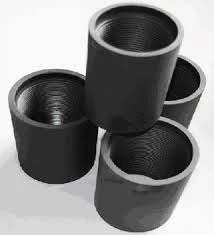API 5CT Casing Coupling Specifications and Applications for Oil and Gas Industry
Understanding API 5CT Casing Couplings An Essential Component in Oil and Gas Drilling
In the realm of oil and gas drilling, the efficient and safe extraction of resources hinges significantly on the integrity and reliability of the drilling equipment used. Among the various components involved, casing couplings play a critical role, particularly those manufactured in accordance with the American Petroleum Institute (API) Spec 5CT standard. This article delves into the importance of API 5CT casing couplings and their applications in the industry.
What is API 5CT?
API Spec 5CT is a specification established by the American Petroleum Institute that outlines the requirements for the design, manufacturing, and testing of casing and tubing used in the oil and natural gas industry. These materials are integral to maintaining the structural integrity of wells, providing support and protection against underground pressures, and ensuring the safety and efficiency of drilling operations.
The Role of Casing Couplings
Casing couplings are essential connectors that join lengths of casing pipes together. Due to the harsh environments encountered during drilling, these couplings must be durable and capable of withstanding significant pressure and stress. API 5CT casing couplings ensure that there are reliable, leak-proof connections between casings, which can be subjected to various mechanical and hydraulic forces.
Managed correctly, a casing coupling can prevent issues such as well collapse, fluid loss, and contamination of groundwater. They are designed with precision to maintain the alignment and stability of the casing strings while enabling effective drilling and production operations.
Types of API 5CT Casing Couplings
Casing couplings meeting API 5CT specifications come in various types, each designed for specific applications. The most common types include
api 5ct casing coupling

1. API Casing Couplings Standardized to meet API specifications, these couplings are used widely in conventional drilling operations. Their design focuses on durability and compatibility with different casing materials.
2. Premium Casing Couplings These couplings offer enhanced performance features, such as superior sealing capabilities and resistance to difficult conditions like corrosive environments. They are most commonly utilized in challenging drilling applications, such as deepwater and high-pressure wells.
3. Threaded Couplings Commonly used for joining casing strings, threaded couplings provide a mechanical method of connecting pipes. They are available in various thread designs, including buttress and API threads, each suited for specific applications.
Importance of Quality and Compliance
Investing in high-quality API 5CT casing couplings can drastically reduce the risks associated with drilling operations. Utilizing couplings that comply with API standards ensures that the materials and designs have undergone rigorous testing for durability, tensile strength, corrosion resistance, and overall performance.
Companies in the oil and gas sector must prioritize sourcing couplings from reputable manufacturers who adhere to these stringent standards. As the industry continues to evolve with advancing technologies, staying up-to-date with API specifications and innovations in coupling designs is essential for maintaining operational efficiency and safety.
Conclusion
API 5CT casing couplings play a critical role in the oil and gas drilling industry, facilitating the safe and efficient extraction of resources. Their robust designs and adherence to strict standards ensure that drilling operations can be carried out with minimized risks. As the demand for energy continues to rise, understanding and utilizing high-quality casing couplings will remain paramount to the industry’s success.
-
Unlock the Benefits of Pup Joints for Your OperationsNewsOct.31,2024
-
The Quality of Casing Couplings from ChinaNewsOct.31,2024
-
The Essential Role of Pup Joints in Drilling OperationsNewsOct.31,2024
-
The Benefits of Tubing Couplings for Your ProjectsNewsOct.31,2024
-
Enhance Your Drilling Operations with Tubing Pup JointsNewsOct.31,2024
-
Elevate Your Drilling Operations with Tubing CrossoversNewsOct.31,2024







